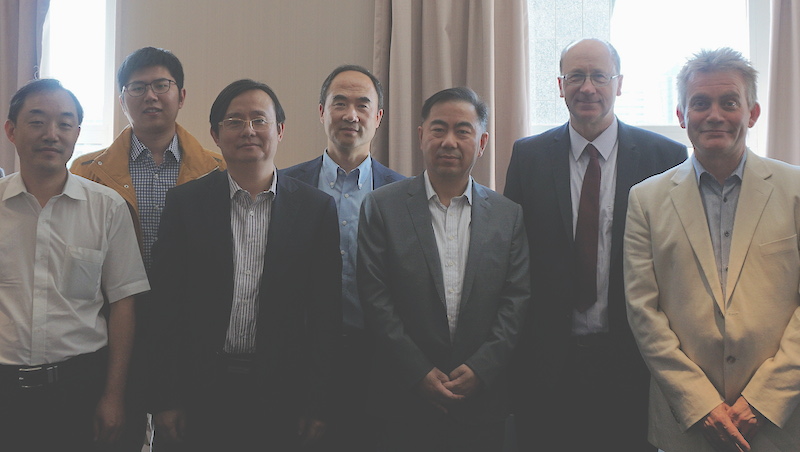Chinese research funders visited the University of Birmingham to explore opportunities to work with engineering experts.
Representatives from Jiangsu Industry Technology Research Institute (JITRI) visited Birmingham and met top researchers in the fields of experimental physics, mechanical engineering and chemical engineering.
Dr Liwen He, Vice President, JITRI and his fellow visitors met Professor Kyle Jiang (mechanical engineering), Professor Zhibing Zhang (chemical engineering) and Professor Richard Palmer (experimental physics) in their laboratories on campus.
Dr He was joined by Xin Yao, Resource Development Department, JITRI; Cheng Ji, Director, Jiangnan Graphene Research Institute; Liang Shan, Vice Director, Food Biotechnology Institute of Jiangnan University; Rongchuan Wang, Director, Robotics and Intelligent Equipment Institute; and Jun Zhou, Director, Nanjing Institute of Advanced Laser Technology.
Professor Jon Frampton, Director of the China Institute and Deputy Pro Vice-Chancellor (China), said “We met with representatives from JITRI in March, and they expressed a strong interest in further developing our relationship that began last year. We are delighted to welcome this distinguished group of visitors to the University of Birmingham. JITRI’s visit is testament to our growing reputation in China, and presents another exciting opportunity for the University researchers to foster strong partnerships across the globe.”
JITRI sponsors research collaboration with Chinese and global universities in a range of areas, including: advanced materials; biotechnology and new medicine; environmental protection; next generation information technology and software; and innovative equipment manufacturing.
Dr Liwen He said: “We have been very impressed by the world-leading research undertaken in Physics, Mechanical Engineering, and Chemical Engineering at the University of Birmingham (UoB), and would like to develop a strategic partnership with UoB to support collaborative research and develop programmes, which is mutually beneficial.”
